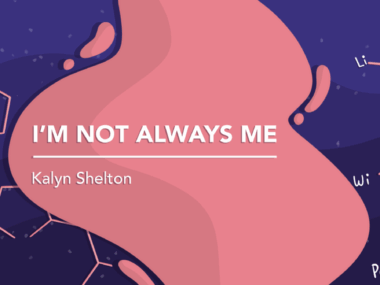Don’t underestimate how much stress can exacerbate acute porphyria
Even positive experiences can be too much for our bodies to handle
Written by |

A few weeks ago, I received Panhematin (hemin for injection) at the infusion center for treatment of my acute hepatic porphyria (AHP), then drove straight to a protest at the Iowa State Capitol in Des Moines. I hooked a rainbow tie-dye face mask behind my ears and walked up the marble staircase to the rotunda, where hundreds of LGBTQ+ activists were gathered in opposition to a bill that would further strip rights from Iowans. Nearly in tears, I hugged my friend after she spoke at the public hearing, then chanted and clapped my hands with the crowd.
Afterward, I walked outside and plunged my hands into the cold grass lining the parking lot. I was activated, feeling angry, sad, and helpless. Touching the earth helped ground me.
The next day, the intensity of my abdominal pain folded my body in half. I lay in bed, feeling as if I hadn’t received my AHP treatment the previous afternoon. I’ve been here more times than I can count, ticking through the happenings of the previous day to determine why my symptoms were so severe.
Close friends and family trust that I’m being honest about the capabilities of my body. The truth is, I can’t always anticipate the consequences. Stress is the sneakiest of all variables that affect acute porphyria, and the hardest to control. But we know stress impacts our bodies, so of course it creates additional strain on already underfunctioning livers.
“I don’t regret going last night,” I told my fellow rare disease friend on the phone that morning about my stress-induced attack.
“When we live with chronic illness, we have to make trade-offs,” she replied.
Living in survival mode
A 2017 study of adults in the United States with various rare diseases compared their quality of life with that of the general population and people with common chronic illnesses. People with rare disease reported the highest levels of anxiety, depression, and fatigue, and decreased social engagement.
Living with AHP is stressful, and not just because of shifting plans and managing intense symptoms alone at home. People with a complex rare disease like AHP go undiagnosed longer, receive misdiagnoses, and may never receive a confirmed genetic diagnosis. This uncertainty is compounded when available treatments are expensive and challenging to access. People with rare diseases and their caregivers spend the equivalent of a full-time job managing health.
When my attacks became more frequent and severe, my mental well-being was the first thing to slip. Much of my stress stemmed from navigating chronic illness in a career-focused world designed for able-bodied people. I habitually compared myself to peers, who don’t have AHP, which made no sense.
I was in survival mode, both learning about my body and how to correctly respond when things escalated. I analyzed every decision, every time I had to exert energy. It was both necessary and exhausting. When you live with active AHP, you are constantly on edge.
Coping with stress
Cognitive shifts and feelings of anxiety are known symptoms of porphyria. Coupled with the daily worry about our health, insurance coverage, and frequent doctor appointments, it’s easy to spiral. And we can’t just unwind with a glass of wine or by going for a run.
Rare disease is isolating. Sadly, there’s not always someone to talk to who truly understands. I receive messages from people every day who’ve never met someone else with their diagnosis. My heart goes out to them, because I know how critical my community is to my management of mental health.
I recently texted with two friends who also live with AHP, one out east and one out west. Both admitted they’ve underestimated the impact of stress on their bodies. Even the effect of positive experiences like vacations or a late night out with friends can be too much for our bodies to handle. It’s something we all have to take one day at a time, because sometimes if we’re feeling good we can get away with more. Other times, we get excited and do too much. We all learn from each other and rely on our texting chain for reassurance and advice.
As much as I despise social media, I’ll be the first to admit my virtual porphyria relationships are the single most important source of information about AHP and day-to-day support. Meditation and acceptance and commitment therapy help me better manage my stress, too. None of these things change our realities, they just make it easier to cope.
Note: Porphyria News is strictly a news and information website about the disease. It does not provide medical advice, diagnosis, or treatment. This content is not intended to be a substitute for professional medical advice, diagnosis, or treatment. Always seek the advice of your physician or other qualified health provider with any questions you may have regarding a medical condition. Never disregard professional medical advice or delay in seeking it because of something you have read on this website. The opinions expressed in this column are not those of Porphyria News or its parent company, Bionews, and are intended to spark discussion about issues pertaining to porphyria.







Leave a comment
Fill in the required fields to post. Your email address will not be published.